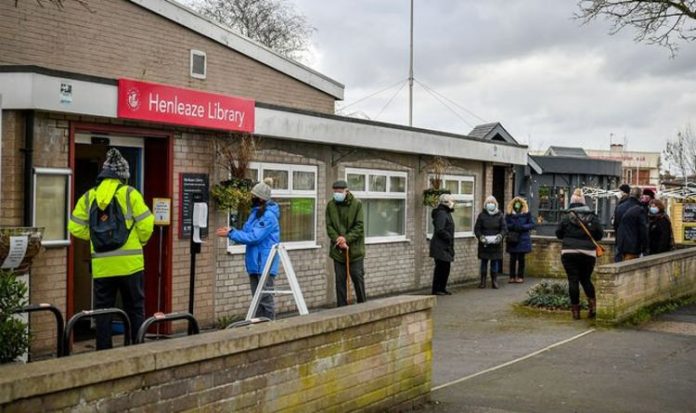Avacta, a Yorkshire biotech firm, has developed a coronavirus test that gives more accurate results within five to ten minutes, compared to the existing American Innova test. The UK Government has spent more than £1 billion on the Innova tests, which give results in 30 minutes.
The tests could be essential for the Prime Minister’s Operation Moonshot, which proposes night-time and sports industries use fast tests to prevent the spread of coronavirus.
Lateral flow tests (LFTs) are set to be proposed by Mr Johnson for mass testing in schools to give fast results.
The one “ticket and test” proposal sees event-goers sent an LFT the day before, with refunds issued to those who test positive.
The new Avacta tests could massively alter the proposal, where event-goers could get tested for coronavirus at the entrance.
READ MORE: Covid breakthrough: Boris Johnson to let two households meet by EASTER as rollout moves on
It comes after a group of 40 MPs issued a report warning that 85 percent of people working in the night-time economy are considering leaving the industry and 78 percent of those employed in the sector have at some point been on furlough.
Jeff Smith, Labour MP for Manchester Withington as well as a former DJ and chairman of the All-Party Parliamentary Group for the Night Time Economy, said city centres will become “ghost towns” without action.
He said: “Our findings today reveal this industry is on its knees, in desperate need of additional support from the Government and a concrete plan for reopening.
“Without these interventions, many of these viable businesses will go under, leaving city and town centres resembling ghost towns. If the Government is serious about its ‘levelling up’ agenda it must act now to save this sector and avoid untold damage to the social fabric of this country.”
It also comes after Nadhim Zahawi, vaccine minister, hinted venues where mass testing would be required will not be allowed to reopen until a majority of the UK has had a coronavirus vaccine.
The Prime Minister previously promised this would be achieved by September, but others have warned of vaccine supply issues.
As of yesterday, 16,423,082 have had their first dose of a coronavirus vaccine while 573,724 have had a second dose.
Yesterday saw another 12,027 cases and 553 deaths within 28 days of a positive coronavirus test, and the rate of infection, or R rate, has fallen to its lowest point since May last year at between 0.6 to 0.9.
In total the UK has reported 4,095,269 cases and 119,920 deaths from coronavirus.







